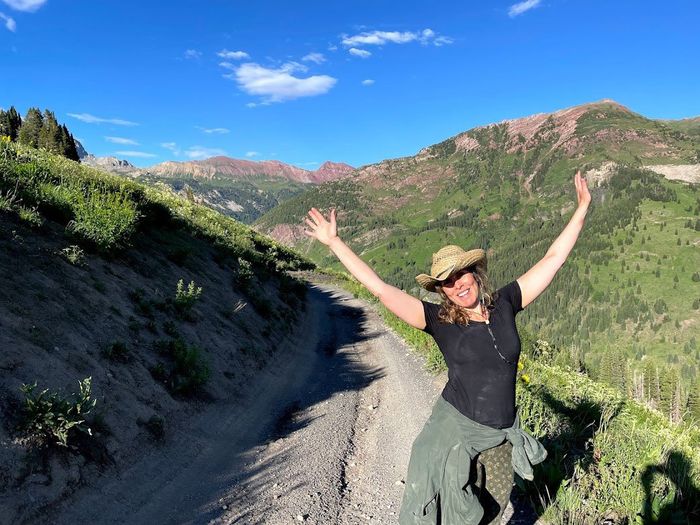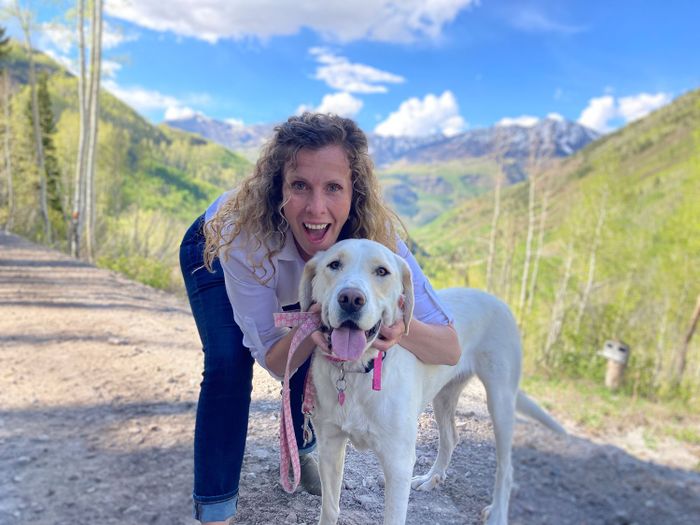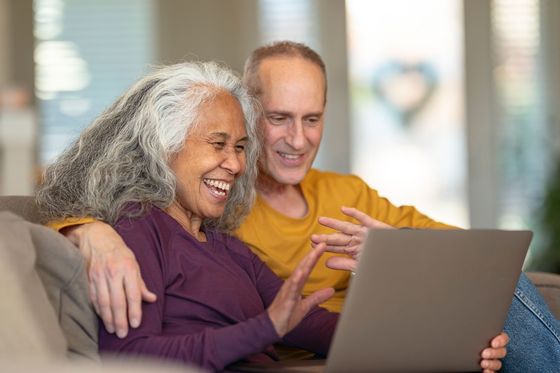About
Thriving with vison loss or visual impairment doesn't happen in isolation.
Working with me can provide a gentle starting place or encouragement to overcome obstacles when you feel stuck or overwhelmed.
Welcome, I'm Erika.
Living with vision loss or visual impairment might be one of the most stressful and vulnerable experiences of your life.
You deserve to have your concerns listened to and to feel understood. That's where healing begins.
Individualized coaching can be a game-changer in helping you transform from distress as your baseline to calm and confidence.
In addition to my professional expertise, my personal experiences with grief, loss, health issues, and caregiving have expanded my compassion, empathy, and respect for the challenges low vision brings; they have made me a companion on the path of inner healing.
Image description: Erika, at a profile, admires the glowing light of dusk in the Moab desert.
I'm honored that individuals experiencing vision loss invite me to journey with them towards healing.
My Story
While volunteering for an AmeriCorps literacy program in Nashville 25 years ago, I learned, that at the time, Vanderbilt University offered a free Braille class for anyone willing to tutor Braille. My AmeriCorps mentor insisted I had to meet Dr. Anne L. Corn, who headed up the program. Sitting in Dr. Corn’s office, where she put her magnifier down atop a scholarly tome and spoke passionately about how low vision impacts children and families, how low vision isn't total blindness but an in-between space in which technical and psychosocial skills make all the difference, I knew I had found my calling.
Although I began my career working with children and families, working with adults became my passion, too. Vision loss in adults challenges personal identity and confidence in a way that requires skill to restore hope. I loved the protected one-on-one time that working as a low vision therapist allowed me. My clients often said that active listening and validation were among the best gifts I gave them. The trust we developed paved the way to solutions and hope.
Throughout my career as a low vision therapist, I've focused on developing expertise in areas where my clients were experiencing the greatest need, such as low vision driving, visual skills, adjustment to visual impairment, and vision loss associated with brain injury.
While providing services in these areas was impactful to individual clients, three barriers continued to be problematic:
- Low vision services were hard to find and not well understood.
- Transportation to access services was challenging.
- Stress from vision loss impacted the benefits of training.
Then, the COVID pandemic normalized Telehealth and highlighted the importance of mental health.
In response, I founded Low Vision Beyond the Clinic to serve people with vision loss and their providers thrive by offering online support to:
- simplify the process of accessing and understanding low vision services,
- use vision better,
- manage vision-specific stress, and
- support low vision providers through an online community offering camaraderie and inspiration.
Join me to experience a unique model of low vision care!


Benefit from experience.
Connect with low vision support from home. Start with a free 15-minute consultation call.
Questions about low vision?


